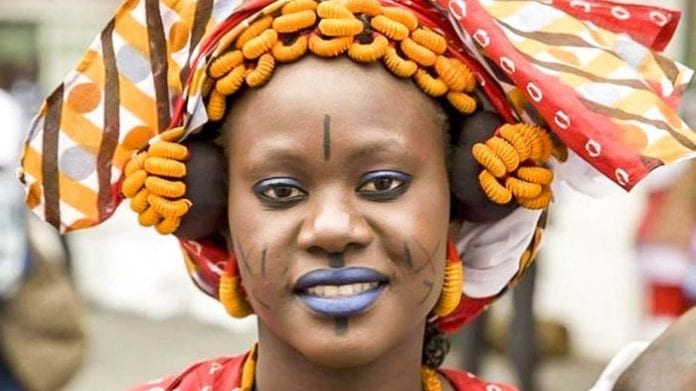Africa remains known for its varied languages, heritage, and cultures. Amidst the many is the Wolof language. Speakers of this language are prominent as Wolof people. They are found in Western Africa in regions of Senegal, Gambia, and Mauritania. Their population across all borders is roughly 7.6 million. Senegal boasts of a 7.1 million population, while the Gambia has over 258 thousand. Mauritania has the lowest number of Wolof speakers with about 230,000 speakers.
The Wolof people, who have been in existence for well over 6 centuries, have evolved from being people of ancient African cultures to people who have come to adopt a lot that the modern world has to offer. Some of the things adopted by Wolof people include fashion style, religion, music, and food.
Profile Of Wolof People
- Ethnicity: Wolof
- Total Population: 7.6 million people
- Countries Found: Senegal, Gambia, Mauritania
- Religion: Predominantly Muslims
- Physical Characteristics: mostly dark-skinned and tall
- Related Languages: Serer and Fula
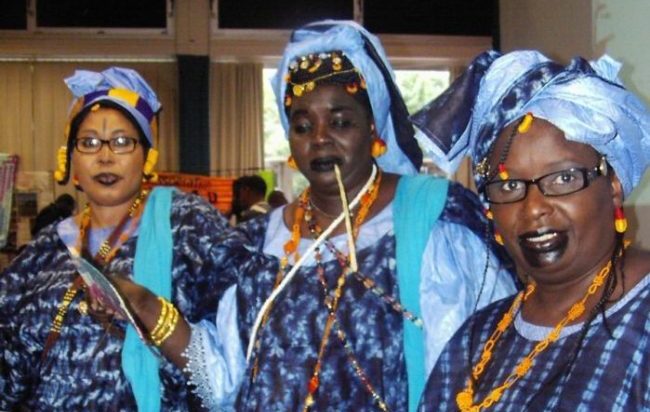
Wolof people belong to the Wolof ethnic group. They are sometimes called:
- Jolof
- Ouolof
- Iolof
- Volof
- Walaf
- Waro-Waro
- Yallof
The Wolof language belongs to one of the four language families of Africa called the Niger-Congo Family. The language family is the most substantial in Africa in terms of the number of speakers, geographic extension, and languages. Other languages that fall under the family are Swahili, Fula, Sango, and Ewe.
In Senegal, Wolof is a majority language. They are, however, a minority in Gambia and Mauritania.
The Origin Of Wolof People
The history of Wolof people is sketchy, with several sources giving a different insight about their origin. However, most reports claim that Wolof may have been founded around 1200.
Despite the many historical disparities, many sources report that the Wolof people are of Fulbe descent. In addition, it was when their initial settlement (Believed to be present-day Ghana) was defeated that they headed to Mali. Subsequently, the conquest of Arab pushed them to move to North and East Senegal to form an Empire called the Jolof Empire.
More to this, the Jolof Empire of the Wolof people added in the number, wealth, and even in their strength. This helped in making them conquer other regions and the kingdom grew to have four separate kingdoms by 1500.
Currently, the Wolof people have spread to different spheres even though their home continues to be Senegal, Gambia, and Mauritania. They can be found in Ghana, Mali, Nigeria, Europe, and even America, mostly as settlers.
What Know About The Wolof People and Language They Speak
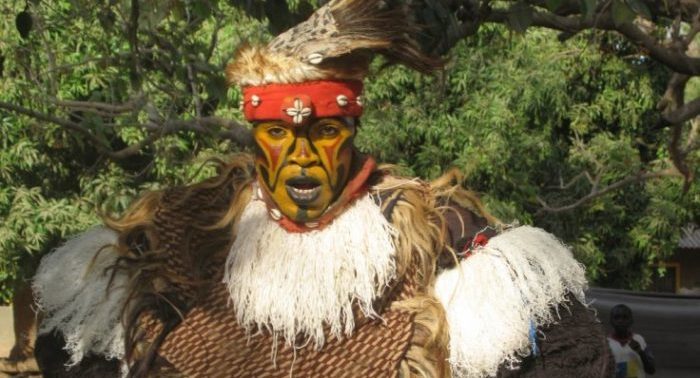
1. There Are Three Categories Of Class Among The Wolof People
The Wolof people from time have had three different classes in their society. This division encompasses
- free-born: The freeborn was the highest-ranked in the society.
- Slave class: the slaves served the freeborn and the low class. They were mostly people captured, punished, purchased, or birthed by slaves.
- Low-class ranks the lowest. It involves people who were blacksmiths, musicians, and other low-income earners.
Although this division of classes may have gone into extinction, the lineages of freeborn have more advantage in the Wollof present society. However, the lineages of the low-class and the slaves have equally transitioned into people of advantage.
2. Some English Words May Have Their Origin From Wolof Language
English has borrowed words and even phrases from many languages. A word like ‘banana’ is believed to be an original word in Wolof. Even though English got the word from Spanish and Portuguese, either of the two languages may have borrowed it from Wolof.
Also, English words such as ‘chigger,’ ‘jive, and ‘juke’ may have their origin in Wolof. This is because of the identity of the lexicons of the words in both languages.
3. They Are Predominantly Muslims
A large number of Wolof people are Sunni Muslims. Nevertheless, their practice of the Islamic religion is often accompanied by local elements.
In addition, the practice of the religion is believed to have started from the high-ranking Wolofs before other people accepted it.
Even with their wide acceptance of Islam and the practice of the faith, a few numbers of them practice Christianity, with a large number being Catholics.
4. They Believe In Family Marriage
The marriage between cousins is a long age standing tradition among the Wolof people. Although this practice reduces by the day, it is still a predominant aspect of the history and traditions of Wolof.
5. Wolof Has Different Dialects In Different Regions
Generally known as one language, Wolof has different dialects spoken in different regions. There are five separate dialects in Senegal, namely Baol, Cayor, Dylof, Lebou, and Jander.
Also, the Wolof spoken in Senegal is moderately different from that spoken in the Gambia.
6. Their Boys Only Become Men After Circumcision
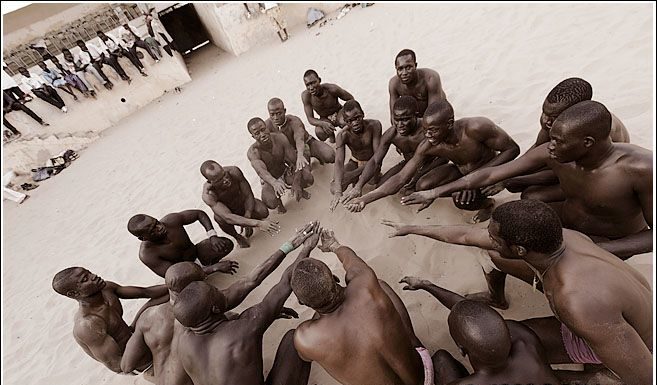
There are many rites of passage in the Wolof tradition. Among them is the transition of boys to men.
When boys turn seven in the old tradition of Wolof, they get initiated into manhood by getting circumcised in the bush. Older brothers of circumcised boys take care of them and teach them about heroes and legends, among other things.
Still, present-day Wolof people rarely practice many of these rites.
7. They Have Great Influence On The Politics And Economy Of Senegal
Being a majority language in Senegal, the Wolof people impact many things in the country. Some of which include political affairs and even the economy.
Indeed, their major career in farming has constantly boosted the economy of Senegal. They are mostly fish and peanut farmers. In fact, Senegal made an estimated amount of $3.92 billion in 2020 through exportation. Their major exports are fish, peanuts, and petroleum, to mention a few.
In politics, they hold great positions in different spheres of political offices in the country. Also, in 2000, a Wolof man Abdoulaye Wade became the president of Senegal.
8. Wolof People May Be The Founders Of African Jollof
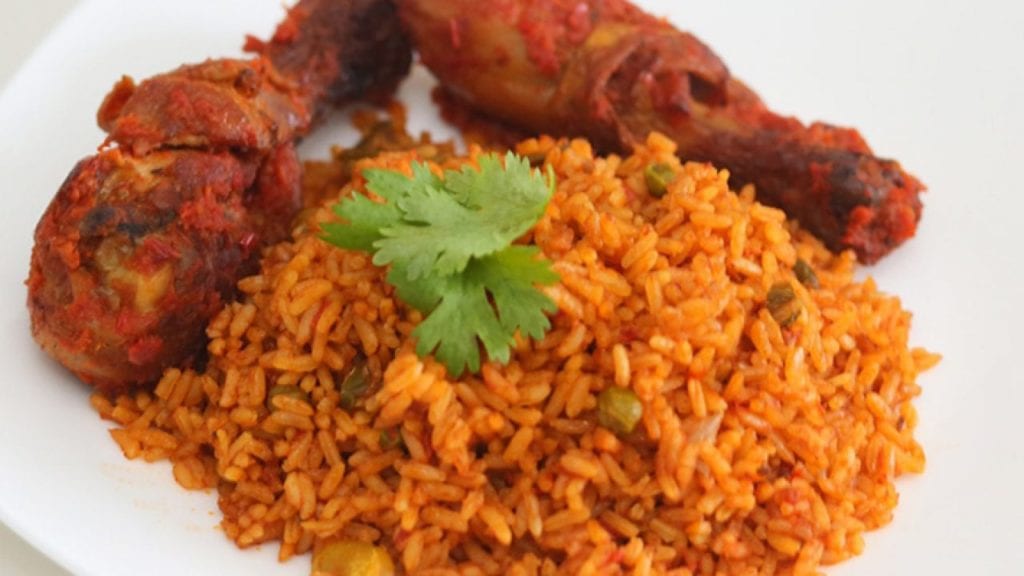
Jollof rice is one of the most popular African dishes. Countries like Ghana, Nigeria, Mali, and Senegal, among other countries, have constantly claimed superiority in the preparation of this dish.
However, its origin can be traced to the Senegambian region ruled by the Jolof Empire – present-day Wolof Empire.
The popular African dish is said to have spread from the regions of the Wolof people through various means. They include trading, historical and cultural channels linking Senegal to other parts of Africa.
9. Modern Wolof People Have Not Lost The Touch Of Their Roots
Many Africans have lost most aspects of their tradition due to colonization and modernization. For Wolof people, many aspects of their culture is still an important part of their everyday life.
For example, the Wolof language has not lost many of its ancient words. The people have not also totally dropped their language for French with is the official language.
Equally important, many musicians infuse their language and culture and many other things into their songs. For example, Youssou Ndour mostly uses Wolof in his music while Ousmane Sembene makes films in Wolof language.
10. They Have Many Notable People In Different Parts Of The World
The Wolof people have produced many renowned people. They include:
- Akon: Senegalese-American singer, entrepreneur, and producer.
- Cherif Ndiaye: a football player who formerly played for Wassland-Beveren, Gorica, and presently players for Goztepe, a Turkish club
- Baye Fall: a former world heavyweight champion
- Youssou Ndour: multi-award-winning singer, songwriter, and activist
- Djibril Diop Mambety: an internationally acclaimed actor, poet, and director, orator, and composer.
